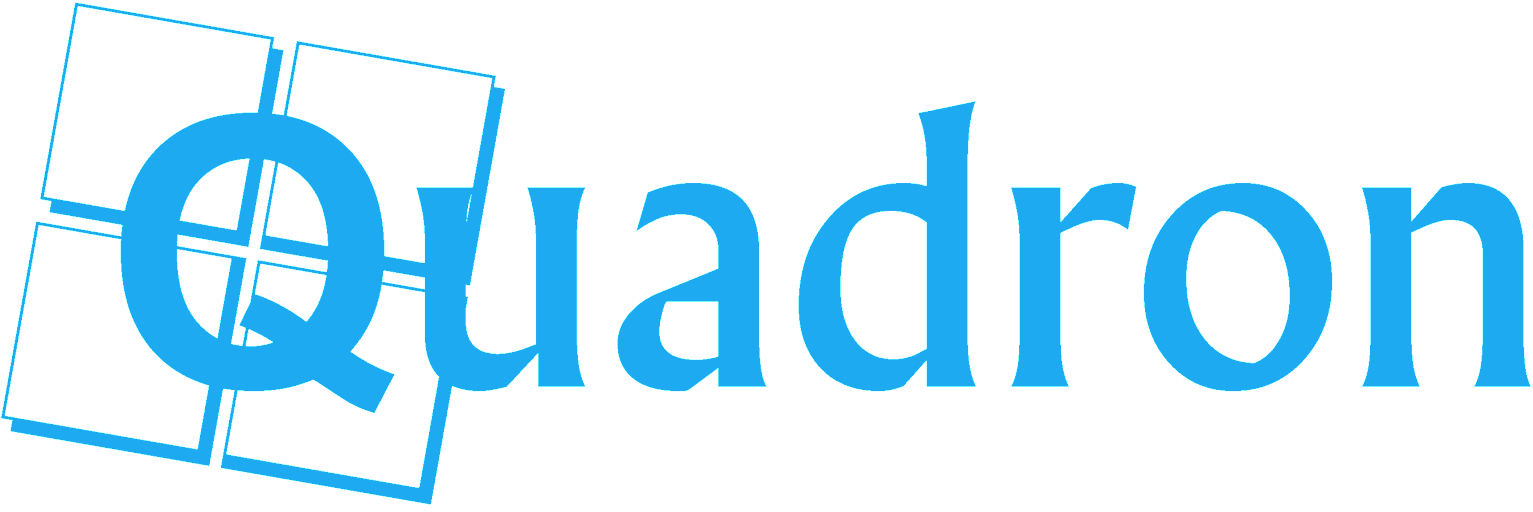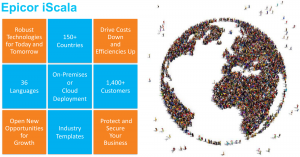iScala ERP software
Next-generation Collaborative ERP platform for genuine collaboration
Get to know iScala 3.5 – one standard software system embracing traditional ERP software with Internet technology. It’s a single new Collaborative ERP platform that enables companies to automate and manage the business processes of their subsidiaries and divisions, and get a complete e-business infrastructure as well.
iScala provides additional security, Scalability and flexibility to handle future change, whatever it may be.
iScala 3.5 is Epicor’s most recent version: it is an upgrade of the previous versions iScala 3.3 and iScala 3.4 which now include mobile apps for easy use on mobile devices, standard functionality in the area of the new privacy law (GDPR) and new analytic capabilities (SSRS and EDA).
If you need :
 An overall view of the business as it happens?
An overall view of the business as it happens?
 Standard software that provides a foundation for the advanced e-business processes critical to your future success?
Standard software that provides a foundation for the advanced e-business processes critical to your future success?
 Innovations like supply chain integration, portals, and private exchanges – the new standards for competitive
Innovations like supply chain integration, portals, and private exchanges – the new standards for competitive
 global business?
global business?
Then iScala 3.5 is for you.
How iScala Works
At the core of the iScala Collaborative ERP solution is key back-office ERP functionality relied upon by international companies, especially the subsidiaries, divisions and suppliers of global enterprises, in over 140 countries around the world.
Management Information
No matter how good your ERP solution is, it stands or falls on the ability to access and understand the information in it. Your accounts, stock, manufacturing processes and customer behavior are all things you need to see – when you want, and how you want. You need to generate reports easily and instantly, in the format you want to see them, and delivered via the web or on paper. With this information you can run your business – not have it run you.
Financial Management
For most companies, ERP starts with managing the financial position of the company – the basics, such as creating and issuing purchase orders, handling invoices, paying your staff, building and managing a budget, and knowing what and where your assets are. From simple accounting to the most complex project-based accounting, you need to know that your software supports your business with a level of security you can trust.
All these figures will need to be consolidated and if you’re part of an enterprise, those figures will need to be consolidated at a regional level either periodically or continuously. If you’re working in many countries where exchange rates vary, you’ll need to know that you can work in your local currency but still report in dollars, euros, yen or whatever you choose.
Looking after your staff’s salaries and payroll management, regardless of currency, will keep your business running into the future and you confident that your iScala solution will be supporting these operations across systems, working collaboratively.
Client Management
If you don’t understand your clients and customers, you can’t expect to retain them. That means you need a database of everything they’ve bought from you in the past, how and when they paid, what pricing discounts they normally get and, ideally, information about the customers themselves. You especially don’t want to anger your best customers by making promises you can’t keep. It’s far better to know exactly what you have available-to-promise and when you can deliver it. When you’re planning projects for those customers it helps to have the same information instantly available.
Service Management
Dealing with service successfully while keeping your customers happy, and your costs down, can mean the difference between profit and loss. Therefore, it’s critical that you understand what contracts apply to what customers, which products have been returned and whether those products correspond to a maintenance agreement or warranty support. If a repair is needed, when will it be done, how long will it take and are there enough resources to do it? You should also be sure that the right people have this information in the right place and at the right time – in the call center or remote service center.
Supply Management
Making sure that your goods are where they need to be in order to plan just enough stock to meet your demands, and find the right supplier to meet your stock requirements, are vital business functions. The ability to avoid holding stock, by using drop shipment, and then automating payments to suppliers to streamline your business processes could add to your bottom line. You also need to know which suppliers to select for the best terms, the quickest delivery or whatever your criteria may be.
Getting the materials is only part of the equation; making sure that you have sufficient raw materials, reducing your cash requirements and ensuring a higher level of quality, is just as important. Quality control can mean the difference between satisfied customers and heaps of returned goods.
Inventory Management
It’s vital to know what goods you have, where they are and how old they are, regardless of whether they are held in one central warehouse or in many. If your business deals with goods that have a shelf life, it’s important to know when the goods will expire. You don’t want to have to write-off valuable goods (therefore the goods need to be allocated to the right bins).
With more and more products containing multiple components and ingredients, understanding which batches of goods are potentially faulty or unsatisfactory can let you identify their locations immediately.
If you are manufacturing or constructing products you need to know exactly what the products contain in order to plan production and purchase of material. Knowing their structure and having this available in real-time gives your company true flexibility.
Manufacturing Management
Making things should be easy, but making the right things at the right time, using your plant effectively while keeping your costs down, can be a challenge. You need to be able to plan your production, schedule your resources, configure your products, understand potential bottlenecks and get the right reports showing you what’s happening, at any time.
From forecasts to planning next month’s production, from costing the production to understanding how your products are configured, iScala’s specialized Manufacturing Planning and Control (MPC) reporting can keep you on top of your manufacturing processes. And this is done using the MRPII (Manufacturing Resource Planning) standard definition your employees are used to.


